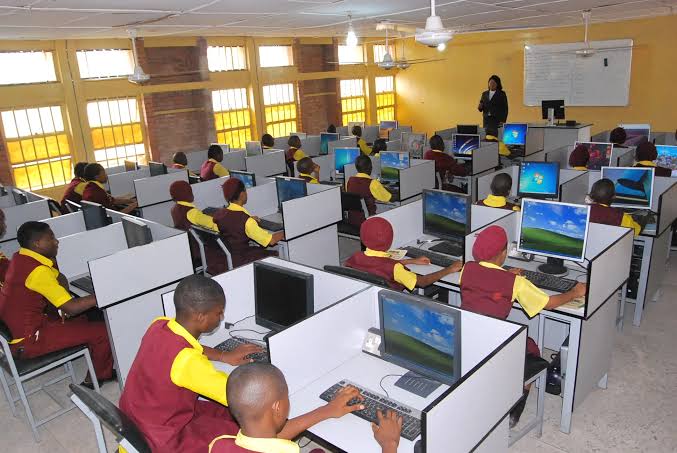Nigeria secondary schools are set to have a curriculum that teaches the student’s subjects such as artificial intelligence (AI), robotics, programming, journalism, fact-checking, and digital entrepreneurship.
The Ministry of Education, unveiling this, said the reforms are aimed at reducing content overload, creating more learning time, and equipping students with skills for the digital economy.
The Ministry noted that junior secondary students will now take 12–14 subjects, senior secondary students 8–9 subjects, and technical schools 9–11 subjects.
“The revised curricula will reduce content overload and create more learning time for students,” Minister of State for Education, Prof. Suwaiba Ahmad, said.
What This Means
Industry leaders say the updated modules go beyond traditional learning to cover Python, JavaScript, HTML/CSS, databases, cybersecurity, and data science basics.
Robotics kits and AI modules will expose students to hands-on learning, while journalism and fact-checking lessons will be integrated into the English Language curriculum.
“Kudos to the Federal Government for rejigging the secondary school curriculum to include tech skills for kids. It’s a proud day for me, as a person. Yes, as a parent. And yes, as a tech player,” said Ridwan Adelaja, media aide to Nigeria’s Minister of Interior.
Why This Matters
Education and technology experts say the overhaul is a long-awaited shift toward equipping Nigerian youth for global competitiveness. But concerns remain about implementation.
“I have longed to see this happen. And finally, I think it’s here. But I just hope it doesn’t end the way the French language as a subject ended for many back in the days,” Adelaja added.
“To avoid this, we will need good teachers who are well paid. Tutors who enjoy teaching the subject and understand the nitty-gritty of the applications,” he added.
Similarly, Amadi Esther, a Lagos-based tech policy analyst, warned that without proper infrastructure, the initiative could stall.
“Curriculum reform is a good first step, but technology subjects require more than paper policy,” she told Techparley. “We need well-equipped labs, teacher retraining, and reliable electricity. Otherwise, students will only learn theory without practical skills.”
Understanding the Bigger Picture
The reforms are part of President Tinubu’s broader push to modernize education and bridge Nigeria’s digital skills gap.
With just 7% of Nigerian youth currently skilled in ICT, according to a 2023 UNICEF report, experts say the urgency of the new curriculum becomes clear.
By embedding programming, AI, robotics, and fact-checking into secondary school learning, observers say the government is seeking to close a glaring skills gap that has left millions of students underprepared for future opportunities.
But the challenge, according to stakeholders, is ensuring that the policy is backed by funding, infrastructure, and monitoring. Without that, the curriculum risks becoming another ambitious idea that struggles in practice.
Talking Points
It is significant that the curriculum for Nigeria secondary schools now embeds AI, robotics, programming, journalism, and fact-checking, subjects that directly address the digital skills gap among young people.
At Techparley, we see this reform as both ambitious and necessary. But ambition alone will not be enough. The real test will be in translating policy into practice. Implementation, teacher training, and infrastructure investment will make or break the initiative.
Looking ahead, partnerships with edtech companies, telecom operators, and development agencies could help close infrastructure gaps and accelerate adoption across the country.
Done right, the curriculum overhaul could be a turning point, preparing millions of Nigeria secondary schools student not only to consume technology but to create and compete with it globally.





